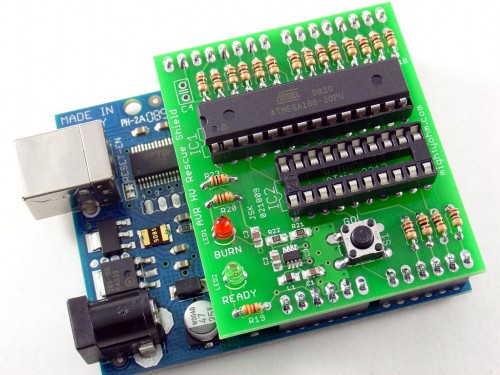
Has anyone else noticed that the ATmega48/88/168 family of 8-bit AVR microcontrollers recently joined Atmel’s “mature devices” list, shown above?
Truthfully, I was not surprised to see this, having been tipped off by an Atmel sales rep earlier this year at ESC in San Jose.
The good news is that while these much-loved ATmega devices are slowly being obsoleted, they are being replaced by the largely-identical ‘PA’ series, which includes the ATmega48PA, ATmega88PA, ATmega168PA, and the ATmega328P. The ‘PA’ devices are enhanced versions of the former ‘P’ series, which added energy-saving picoPower functionality to the original devices.
Porting code to the new family should be fairly straightforward given that the PA family is designed to be a drop-in replacement. To help with the switchover, Atmel has released some migration notes, including AVR512, “Migration from ATmega48/88/168 to ATmega48P/88P/168P” and AVR528, “Migrating from ATmega48/88/168 and ATmega48P/88P/168P to ATmega48PA/88PA/168PA“. Regardless, check your header files and fuse bits for any changes.
If you are anxious about switching devices, don’t panic, the ATmega48/88/168 devices are still in stock at all major distributors, while the PA devices aren’t even on the radar yet. While professionals might want switch AVRs for new designs, hobbyists will likely still be using the older devices for years to come. (Long live the PIC16F84!)


